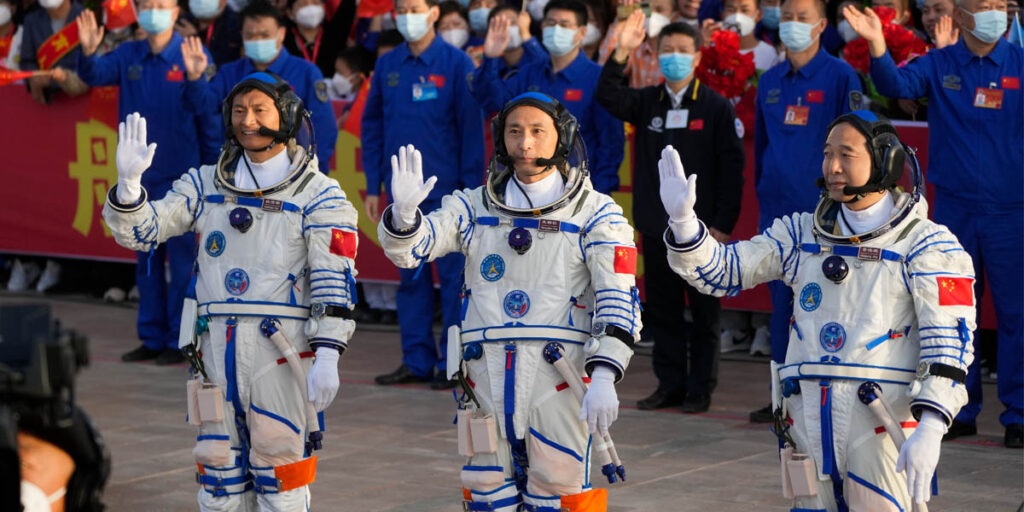The rapid escalation of China’s capabilities in this domain has emerged as a focal point of concern for international stakeholders. This sentiment was echoed forcefully by General Stephen Whiting, the commander of the U.S. Space Command, in his recent address to the Senate Armed Services Committee. General Whiting’s testimony painted a vivid picture of a rapidly evolving space landscape, one in which China’s military advancements proceed at a pace that can only be described as “breathtaking.”
Central to General Whiting’s concerns is the recognition of space as a crucial element of modern warfare, deeply integrated into the fabric of all-domain security activities. The implications of this integration are profound, necessitating a vigilant and forward-looking stance from the U.S. Space Command. General Whiting underscored the importance of this perspective, emphasizing the “urgency for our Command to advocate for delivery of new space capabilities and capacity to retain an enduring competitive advantage.” This statement reflects a clear-eyed understanding of the stakes involved in maintaining strategic superiority in an increasingly contested domain.
China’s ambitions in space are not limited to achieving parity with other nations; rather, they are focused on establishing dominance across the spectrum of space technology. By 2030, General Whiting warned, China aims to reach “world-class status in all but a few space technology areas.” This objective is not merely aspirational but is underpinned by a concerted effort to develop military space and counterspace capabilities that could neutralize American and allied assets at will. General Whiting’s depiction of China’s strategy reveals a multifaceted approach aimed at enhancing the precision, reach, and lethality of its terrestrial forces, thereby reshaping the strategic landscape.
The tangible manifestations of China’s growing power in space are stark. Since 2018, China has more than tripled its orbital presence, deploying over 359 systems into its satellite fleet. This expansion significantly bolsters China’s ability to monitor and potentially disrupt U.S. operations, underscoring the strategic implications of China’s space endeavors. Moreover, China’s investment in counterspace weapons programs provides it with the capability to damage or destroy U.S. space assets, a reality that General Whiting highlighted by noting the development of “space-based antisatellite weapons.”
The broader context of General Whiting’s testimony also touches on concerns regarding Russia’s potential deployment of nuclear space weapons, a development that would further complicate the security calculus in space. Despite Russia’s denials, the U.S. remains wary of the suite of counterspace weaponry being pursued by Moscow, including directed energy weapons and satellite communications jammers. General Whiting’s remarks underscore the persistence of space as a domain of strategic competition, echoing Cold War-era tensions while pointing to the novel challenges posed by contemporary technological advancements.
The urgency conveyed by General Whiting’s testimony is not merely a reflection of current realities but also a call to action. The dynamic nature of space as a domain of military and strategic competition requires a proactive and innovative approach to ensure the United States and its allies can navigate the challenges ahead. As the capabilities of potential adversaries continue to evolve, the imperative to maintain a competitive edge becomes all the more critical. General Whiting’s insights serve as a sobering reminder of the stakes involved in securing a future where space remains a domain characterized by exploration, innovation, and security for all.
As a final note, ACZ experts and contacts note that much is unstable at the top of the Chinese government. Several knowledgeable people believe that Xi and the Chinese Communist Party will collapse and China will Balkanize into separate countries, led by military generals who hate each other. Who will retain control of these very lethal asset? A U.S. ally among those generals? Or a fanatic worse than Xi?
